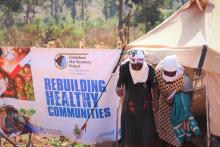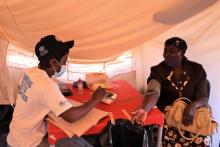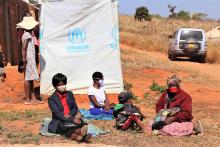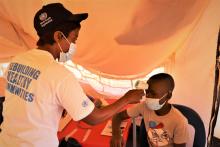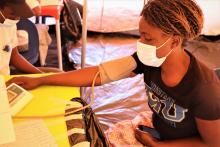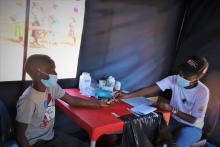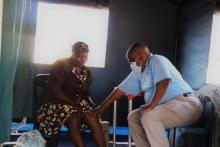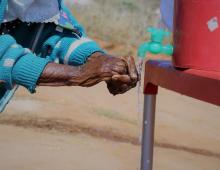World Bank supports continued health services provision for Cyclone Idai affected communities in Chimanimani
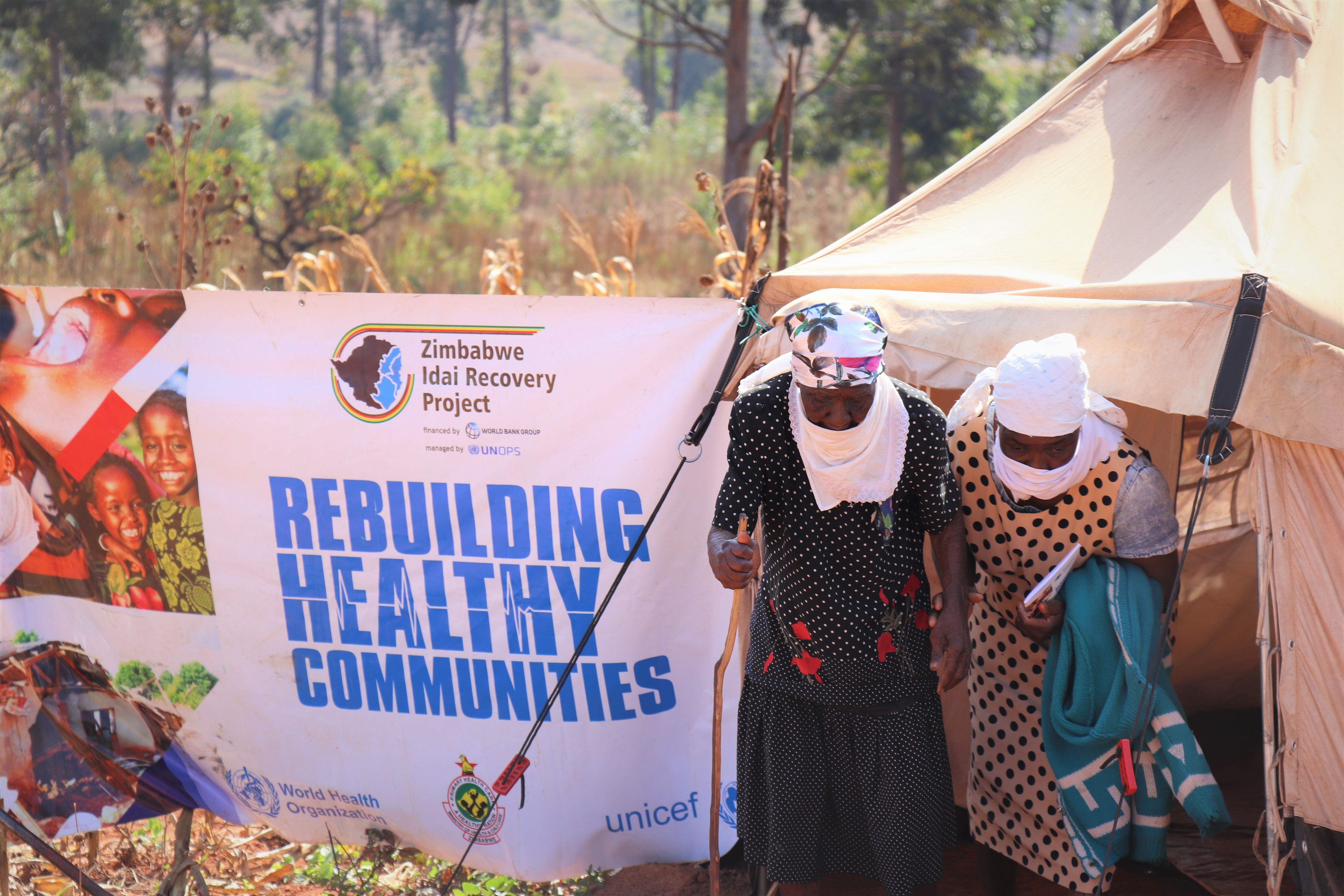
By Tatenda Chimbwanda
Chimanimani, Zimbabwe - “The horrors of what happened on the evening of March 2019 still linger in my memories. I will rather not get into the emotional trauma l went through. l lost my house, relatives and friends all in a split second. It’s a miracle that l am still alive,” recollects Grace Chikara a resident of Garikai Internal Displaced Persons (IDP) Camp, Ngangu in Chimanimani. Ngangu Township and Kopa growth point were the two most affected areas which today still feel the brunt of the cyclone.
The cyclone resulted in destruction of infrastructure including telecommunication and electricity network, roads and bridges blocking access to health facilities for at least 6 communities. Inaccessibility and destruction of health facilities disrupted maternal and child health services as well as access to medication including drugs for chronic conditions such as HIV and TB. Destruction of water and sanitation facilities exposed the population to communicable diseases such as diarrhea, cholera and malaria and non- communicable illnesses like malnutrition.
Grace Chikona and her 14-year-old son Tinashe Kasara have been staying at Garikai IDP camp for 9 months. The camp is run by the United Nations High Commissioner for Refugees (UNHCR). More than 230 people in Chimanimani, whose homes were destroyed by Cyclone Idai in March 2019, are still living in tents just like Grace and her son.
“This is the third time my son and l have received free health care services from Zimbabwe Idai Recovery Project (ZIRP). They always come to our camp and l am always happy as l get to see the doctor and get free medication. Seeing a doctor is a big thing to us because they are not a lot of them here and we also need to pay. I just received painkillers for free as l have been suffering for a headache,” explains Grace after seeing the doctor during their scheduled health outreach visit at Garikai IDP Camp.
“My son has also seen the doctor and received medication. As you are aware l have nothing, but one thing l no longer need to worry about is access to the doctor and medicine thanks to ZIRP,” added Grace.
In Chimanimani and Chipinge districts Cyclone Idai killed many, leaving hundreds homeless and destroying infrastructure worth between US$542-616 million. In order to support Cyclone Idai victims, the World Bank set up ZIRP, a $72 million 3-year project managed by UNOPs and implemented by WHO, UNICEF, FAO and WFP. The former, is aimed at immediate recovery, livelihood support, and restoration of community infrastructure and social services for Cyclone Idai populations.
As an implementing partner under ZIRP, WHO has been supporting health systems in Chipinge and Chimanimani to enhance increased health access, through community outreach using mobile clinics which provide free integrated health services. Grace and her son are some of the beneficiaries of this service at Garikai IDP camp. In Chimanimani, the outreaches continue to deliver health services in the three main IDP camps namely; Arboretum, Nyamatanda and Garikai. The health outreaches are also open to IDP camps surrounding communities.
To date, WHO has deployed a total of 16 health workers including medical doctors, nurses, environmental, laboratory and pharmacy technicians to constitute the mobile clinic teams that are providing integrated health care services to communities in Chipinge and Chimanimani. The mobile teams continue to offer a comprehensive health care package that includes preventive, curative, health promotion, and referral services for free at both static and outreach points such as Garikai IDP camp.
In the last 5 months, 14,706 people have received health care services in Chimanimani and Chipinge District by the end of July, 2020. A total of 5,884 children have been accessed for growth monitoring and nutrition promotion with 1,436 women provided with family planning services. Furthermore, 15, 030 people have been sensitized on COVID-19, prevention of malnutrition malaria and water borne diseases. The former, has been complimenting Chimanimani’s District health promotional officer in informing the community on COVID-19 preventive measures.
Communications Officer
Tel: + 263 914 31408
Email: juliasw [at] who.int



